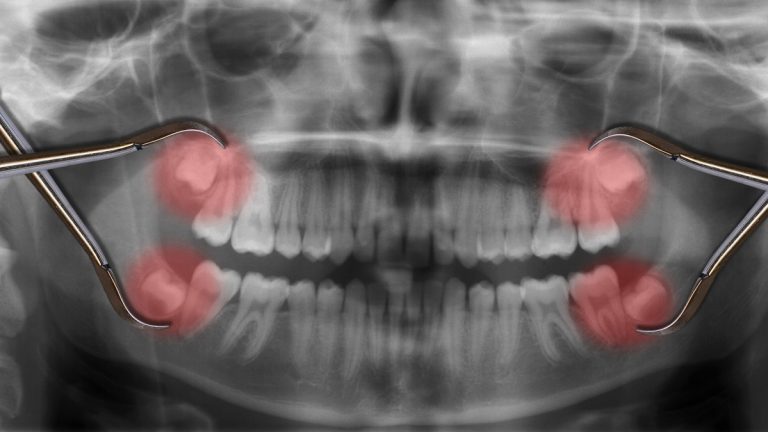Wisdom teeth, also known as third molars, are the most commonly missing teeth in the adult mouth, and their eruption can often lead to complications that affect overall dental health. These teeth usually appear between the ages of 17 and 25 and while some people experience no problems, others may experience numerous problems such as pain, infection or damage to the adjacent teeth.
The Complications of Wisdom Teeth
One of the most common problems associated with wisdom teeth is impaction. An impacted wisdom tooth is one that grows at an angle or does not fully erupt, causing pain, swelling and infection in the surrounding gum tissue. This can lead to damage to neighboring teeth and, in rare cases, serious infections that can be life-threatening. Also, crowding is a common problem, which can cause teeth to grow incorrectly and lead to discomfort and possibly misalignment of other teeth.
Genetics and Wisdom
The presence or absence of wisdom teeth varies greatly from person to person, often determined by genetics. This means that while some people may never develop wisdom teeth, others may have all four. No matter how many wisdom teeth a person has, it is important to monitor their growth and health through regular dental checkups.
Wisdom Tooth Extraction: A Preventative Approach
The decision to extract wisdom teeth is a subject of constant debate among dental professionals. Some argue that preventive extraction can prevent potential complications such as infections, cysts and damage to other teeth. Others, however, believe that regular monitoring through dental checkups may be a viable alternative, as not all wisdom teeth cause problems.
Understanding the export process
The wisdom tooth extraction procedure is usually performed in a dentist or office with local or general anesthesia. It is generally a safe procedure, but like any surgery, there is a small risk of complications. After extraction, it is important to follow aftercare instructions to ensure a successful recovery. These usually include resting, avoiding strenuous activities for a week, and maintaining a proper diet. Patients should contact their dentist if they experience complications after extraction.
Importance of regular dental checkups
Regardless of whether extraction is chosen, proper care and management of wisdom teeth is vital. Regular dental checkups allow monitoring of any potential problems with wisdom teeth and overall oral health. Remember, early detection of any dental problem, including wisdom tooth problems, can often lead to simpler and more effective treatments.
Ultimately, the goal is to maintain good oral health. Whether your wisdom teeth are causing problems or not, it’s important to stay informed, visit your dentist regularly, and take appropriate action when necessary, as the condition of your wisdom teeth can significantly affect your overall dental health.

